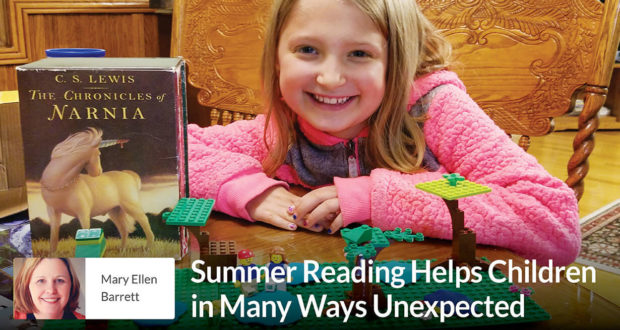Summary
Opening a new book is the beginning of a journey to become a better listener, have a wider vocabulary, and gain a better understanding of other cultures.According to my mother, my love affair with reading began as a toddler. I was well known for walking into a room, slapping a picture book upon the lap of the nearest seated person, and hopping up there with the command “read”.
The first book I remember loving was “The Hidden Staircase” one of the first Nancy Drew mysteries written and the first one I read the summer I was eight years old. This led to my passion for anything written by Agatha Christie, Josephine Tey, Ngaio Marsh, Patricia Wentworth, G.K. Chesterton, Mary Roberts Rhinehart, Edmund Crispin, Dorothy Sayers’s, and many other writers of the
Golden Age.
Dorothy Sayer’s detective Lord Peter Wimsey introduced me to the inner workings of the early twentieth-century British aristocracy but also to his favorite poet John Donne, whose poetry I still often read.
This love of poetry inspired my pursuit of a degree in English literature with a concentration in Romantic poets so you might justifiably say that my ability to quote Keats is a direct result of summer afternoons spent with Nancy Drew.
Summer reading is about lazy days in a cool house, on a hot beach, or swaying gently in a backyard hammock. It’s about entering worlds previously unknown and becoming acquainted with characters that become a part of you. And isn’t that what we wish for all children? To be lifelong readers, which is to be lifelong learners, and a summer of stories can accomplish this.
There is a kind of magic in opening a new book. It is the beginning of a journey that might change a child forever. Those who consider themselves readers can describe characters from their favorite novel as if they were describing an old friend because that is what those characters become: old friends.
By providing your children the incentive to spend time reading and opening the doors to different kinds of fiction you are inviting them to make new friends who will be with them forever.
Reading for pleasure also has many benefits beyond the obvious. Not every book we read needs to be an important work of literature to have a beneficial effect. Reading fiction has been shown to increase empathy in children. They become better listeners, have a wider vocabulary, and gain a better understanding of
other cultures.
According to recent surveys (Harris Poll and Kindle), adults who read for even fifteen minutes a day are happier, healthier, and have better relationships than those who spend those minutes on a streaming app. These polls just prove what bibliophiles have always known; reading makes you happy.

 Seton Magazine Catholic Homeschool Articles, Advice & Resources
Seton Magazine Catholic Homeschool Articles, Advice & Resources
